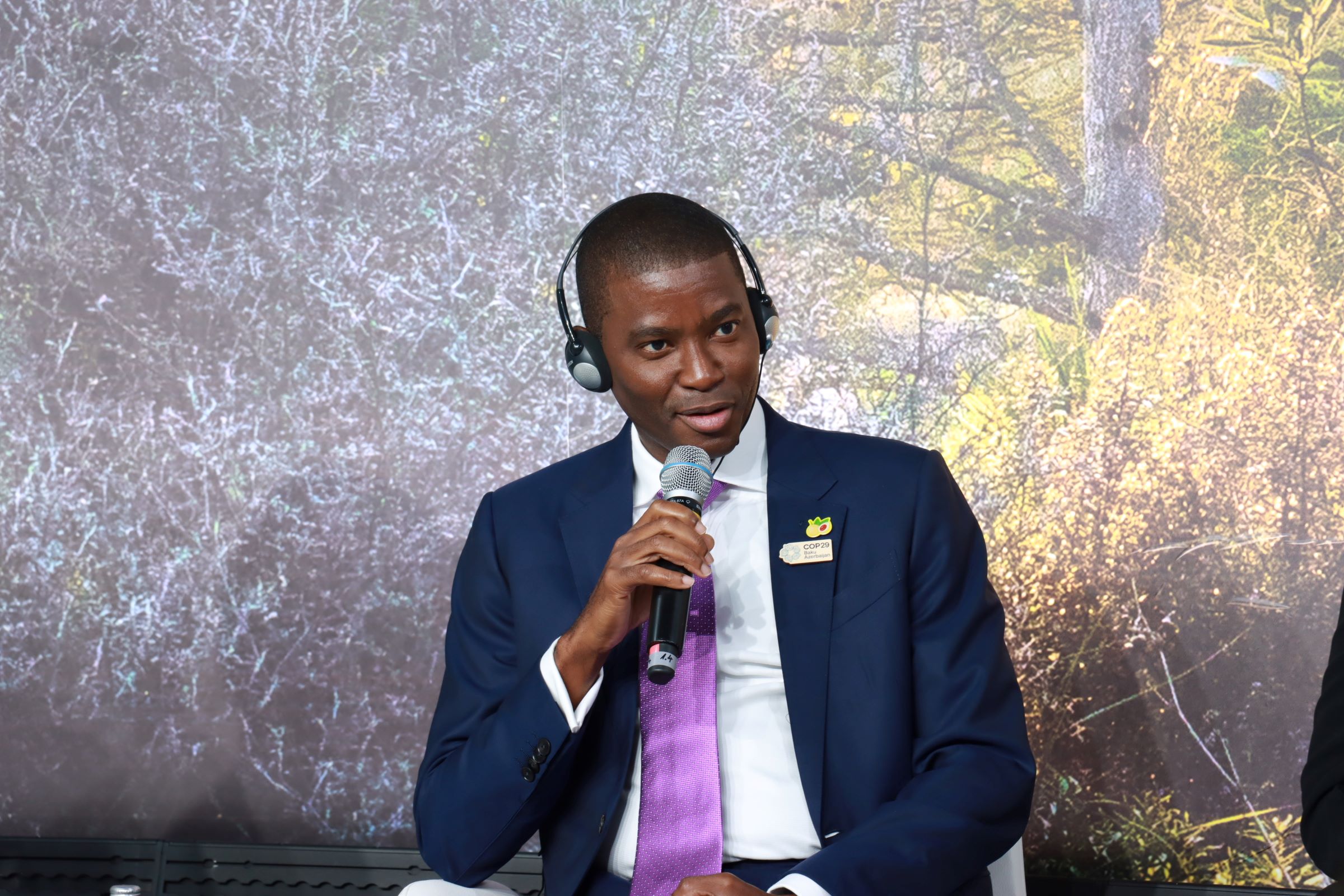The 29th Conference of the Parties (COP29) is currently taking place in Baku, Azerbaijan, a nation whose economy remains deeply tied to oil and natural gas. Despite its reliance on fossil fuels, Azerbaijan’s hosting of this pivotal climate conference underscores the global importance of addressing the climate crisis. According to the United Nations Framework Convention on Climate Change (UNFCCC), this year’s agenda prioritizes setting new climate finance goals, cutting greenhouse gas emissions, and enhancing community resilience.
The Caribbean Community (CARICOM) is playing an active role at COP29, with leaders pushing for stronger climate action and dedicated financial support to tackle the vulnerabilities of Small Island Developing States (SIDS).
Three days into the conference, Grenada’s Prime Minister, Honourable Dickon Mitchell, attending his first COP, has maintained a demanding schedule. Speaking at the UK Pavilion on November 13th, he highlighted the pressing need to simplify access to climate financing. “If the processes to access funds are not streamlined and straightforward, it becomes incredibly frustrating and unproductive,” he told an engaged audience that included key UK donor agency representatives.
For Caribbean SIDS, this is a critical issue. CARICOM’s advocacy focuses on securing grant-based or concessional financing for adaptation, resilience, and addressing loss and damage. Prime Minister Mitchell emphasized the urgency of having funds readily available to support these priorities.
However, regional leaders have consistently voiced frustration over the inadequacies of climate finance—describing it as insufficient, delayed, or hampered by complex bureaucratic hurdles. “There’s a significant gap between what is promised on paper and what is actually delivered,” Mitchell explained during an interview with Danelle De Coteau-Campbell, Lead Communications Specialist for CCCCC, at the CARICOM Pavilion.
Outlining his expectations for COP29, Mitchell delivered three key messages:
- Simplify and streamline the processes for accessing climate funds to make them more user-friendly and effective for those in urgent need.
- Move beyond empty promises and focus on actionable, tailored solutions that reflect the unique circumstances of each country and region.
- Innovate private financing mechanisms to address pressing climate challenges effectively.
He also called for a significant expansion of the Loss and Damage Fund established at COP27, urging that it be scaled up and utilized efficiently.
The Loss and Damage Fund, launched in Sharm El-Sheikh, Egypt, in 2022, aims to assist developing countries most affected by climate change. Yet for Prime Minister Mitchell, the slow pace of implementation remains a major concern. Caribbean nations, including Grenada, face the annual threat of hurricanes, highlighting the urgent need for these funds.
His attendance at COP29 was further motivated by the devastation caused by Hurricane Beryl just four months earlier. Striking Grenada, Carriacou, and Petite Martinique on July 1, 2024, the storm left widespread destruction in its wake. Reflecting on his decision to attend, Mitchell remarked, “I had been skeptical about these conferences in the past, but experiencing Hurricane Beryl firsthand underscored the importance of ensuring our partners understand that this isn’t about assigning blame. It’s about addressing a crisis that will soon affect everyone.”
UNFCCC Executive Secretary Simon Stiell, a fellow Grenadian, reinforced this urgency during his opening remarks. Drawing from his own experience with Hurricane Beryl’s impact on Carriacou, Stiell implored global leaders to take meaningful steps to combat the climate emergency.
At COP29, CARICOM nations remain steadfast in their call for limiting global warming to 1.5°C. They are also urging oil-producing nations, including host country Azerbaijan, to align their energy policies with this critical climate target.
